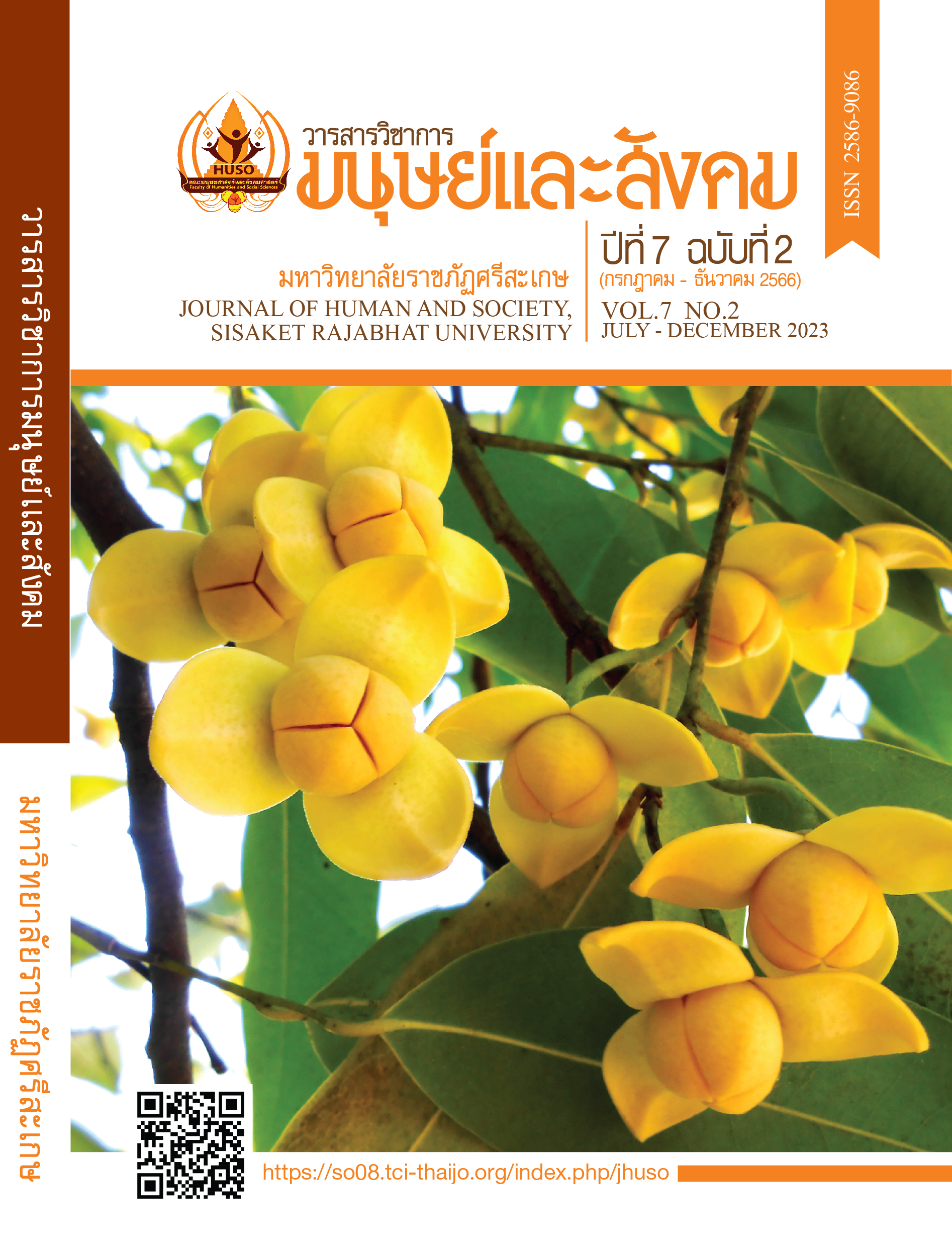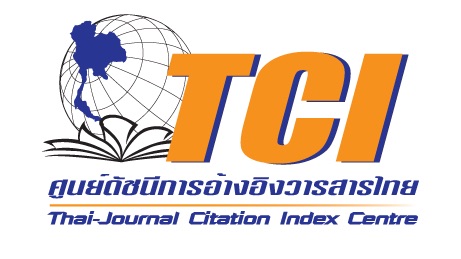Social-Cultural Factors which Influence Local Politics in Si Sa Ket
Keywords:
Local Elections, Social-Cultural Factors, Local Politics in Si Sa KetAbstract
This research aims to study the relationship between social, cultural, political, and local politics in Si Sa Ket. The sample groups consist of 200 men and 200 women who have the right to vote and have been living in various districts of Si Sa Ket Province. The author applied Quota Sampling to select the population for the research and used questionnaires as the research tool. The results showed that the majority of the research population was over 45 years old (200 people - 50%), had completed compulsory education (175 people - 43.75%), were engaged in farming
(40 people - 35%), and had local citizenship status by being born in the constituency area (280 people - 70%)
The sample groups expressed their opinions on various social-cultural factors that influence local politics. The top three issues rated highest were the importance of candidates (mean score - 4.53), the relationship between the local community and kinship (mean score - 4.52), and the significance of local political groups (mean score - 4.51). The medium-level issue was the importance of the national network of politicians (mean score - 3.45). After analyzing the relationship between social-cultural factors and their influence on local politics in Si Sa Ket, the author found that these factors significantly influenced local politics at a significance level of 0.05, confirming the research hypothesis. Upon closer examination of each issue, the author found that personal importance, the significance of local political groups, emphasis on vision/policy guidelines, presentation of the policy vision, and the use of local kinship relations all showed a positive relationship with local elections at a significance level of 0.05. However, the importance of the national network of politicians did not show a significant relationship with local election factors.
References
โกวิทย์ พวงงาม และอลงกรณ์ อรรคแสง. (2547). มิติใหม่องค์การปกครองส่วนท้องถิ่น : ผู้บริหารท้องถิ่นที่มาจากการเลือกตั้งโดยตรงจากประชาชน. เสมาธรรม.
นงค์รักษ์ ต้นเคน. (2558). ปัจจัยที่มีอิทธิพลต่อการตัดสินใจของประชาชนในการลงคะแนนเลือกนายกองค์การบริหารส่วนตำบลคำเตย อำเภอเมือง จังหวัดนครพนม [รัฐประศาสนศาสตรมหาบัณฑิต สาขาวิชารัฐประศาสนศาสตร์]. มหาวิทยาลัยราชภัฏมหาสารคาม.
ธนวัฒน์ รัศมี และวิไลลักษณ์ เรืองสม. (2560). ปัจจัยที่ส่งผลต่อการตัดสินใจเลือกผู้สมัครรับเลือกตั้งระดับท้องถิ่น ในอำเภอวิเศษชัยชาญ จังหวัดอ่างทอง [สาขารัฐประศาสนศาสตร์]. มหาวิทยาราชภัฏวไลยอลงกรณ์.
ไพบูล เติมสมเกตุ และคณะ. (2553). คุณลักษณะและบทบาทของนายกเทศมนตรีที่พึงประสงค์ : กรณีศึกษาเทศบาลนครเชียงรายอำเภอเมืองเชียงราย จังหวัดเชียงราย [สารนิพนธ์รัฐศาสตรมหาบัณฑิต (สื่อสารการเมือง) วิทยาลัยสื่อสารการเมือง]. มหาวิทยาลัยเกริก.
เศรษฐพร หนุนชู, กิติคุณ ด้วงสงค์ และพระมหาโชตนิพิฐพนธ์ สุทุธจิตฺโต. (2560). การเมืองการปกครองส่วนท้องถิ่นไทย. วารสาร มจร. อุบลปริทัศน์, 2(2), 109-122.
อังศุพร บิลหมัน. (2561). การตัดสินใจเลือกผู้นำท้องถิ่นของประชาชนในเขตเทศบาล เมืองคลองแห อำเภอหาดใหญ่ จังหวัดสงขลา [ปริญญารัฐประศาสนศาสตรมหาบัณฑิต]. มหาวิทยาลัยหาดใหญ่.
ศิวิไลซ์ นัมคณิสรณ์. (2553). ความคิดเห็นของประชาชนเกี่ยวกับปัจจัยที่มีผลต่อการลงคะแนนเสียง เลือกตั้งนายกองค์การบริหารส่วนตำบลสะตอน อำเภอสอยดาว จังหวัดจันทบุรี [วิทยานิพนธ์รัฐศาสนศาสตรมหาบัณฑิต, สาขาวิชาการจัดการภาครัฐและภาคเอกชน, วิทยาลัยการบริหารรัฐกิจ]. มหาวิทยาลัยบูรพา.
Cohen, C. J. & Kahne, J. (2012). Participatory politics. New media and youth political action. Chicago, IL: MacArthur Foundation.
Flanagan, C. & Levine, P. (2010). Civic engagement and the transition to adulthood. The Future of Children, 20(1), 159-179.
Terriquez, V. (2017). Legal status, civic associations, and political participation among Latino young adults. Sociological Quarterly, 58(2), 1-22.
Downloads
Published
How to Cite
Issue
Section
License
Copyright (c) 2023 Journal of Human and Society, Sisaket Rajabhat University

This work is licensed under a Creative Commons Attribution-NonCommercial-NoDerivatives 4.0 International License.







